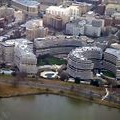Search results
These articles charged Nixon with: (1) obstruction of justice in attempting to impede the investigation of the Watergate break-in, protect those responsible, and conceal the existence of other illegal activities; (2) abuse of power by using the office of the presidency on multiple occasions, dating back to the first year of his administration (1...
Nov 24, 2009 · On July 27, 1974, the House Judiciary Committee recommends that America’s 37th president, Richard M. Nixon, be impeached and removed from office. The impeachment proceedings resulted from a...
People also ask
Why was Nixon impeached?
How many articles of impeachment were voted in 1974?
Did Republicans vote to impeach Nixon for obstruction of Justice?
Where can I find a book about Nixon's impeachment?
The circumstances surrounding the impeachment of President Nixon were sparked on June 17, 1972, by the arrest of five men for breaking into the Democratic National Headquarters at the Watergate Hotel and Office Building.
All three articles, as voted, had reference to Watergate, and all charged breach of the oath of office. The first article charged Nixon with having "prevented, obstructed, and impeded the administration of justice" by withholding evidence and participating in the "cover-up" of the Watergate affair.
- The Watergate Break-In
- Nixon's Obstruction of Justice
- Bob Woodward and Carl Bernstein Investigate
- The Saturday Night Massacre
- Nixon Resigns
The origins of the Watergate break-in lay in the hostile political climate of the time. By 1972, when Republican President Richard M. Nixon was running for reelection, the United States was embroiled in the Vietnam War, and the country was deeply divided. A forceful presidential campaign therefore seemed essential to the president and some of his k...
It later came to light that Nixon was not being truthful. A few days after the break-in, for instance, he arranged to provide hundreds of thousands of dollars in “hush money” to the burglars. Then, Nixon and his aides hatched a plan to instruct the Central Intelligence Agency (CIA) to impede the FBI’s investigation of the crime. This was a more ser...
By that time, a growing handful of people—including Washington Post reporters Bob Woodward and Carl Bernstein, trial judge John J. Sirica and members of a Senate investigating committee—had begun to suspect that there was a larger scheme afoot. At the same time, some of the conspirators began to crack under the pressure of the cover-up. Anonymous w...
When Cox refused to stop demanding the tapes, Nixon ordered that he be fired, leading several Justice Department officials to resign in protest. (These events, which took place on October 20, 1973, are known as the Saturday Night Massacre.) Eventually, Nixon agreed to surrender some—but not all—of the tapes. Early in 1974, the cover-up and efforts ...
Finally, on August 5, Nixon released the tapes, which provided undeniable evidence of his complicity in the Watergate crimes. In the face of almost certain impeachment by Congress, Nixon resignedin disgrace on August 8, and left office the following day. Six weeks later, after Vice President Gerald Fordwas sworn in as president, he pardoned Nixon f...
Jan 2, 2024 · Reviews the law and evidence in regard to charges of illegal wiretapping, abuse of the Internal Revenue Service, and other alleged abuses of power. Also examines the subpoena power of the House of Representatives in impeachment inquiries.
Aug 9, 1974 · During the three summers, and two winters of what clearly has been the biggest political scandal in the history of the United States, Richard M. Nixon was investigated more heavily and...


